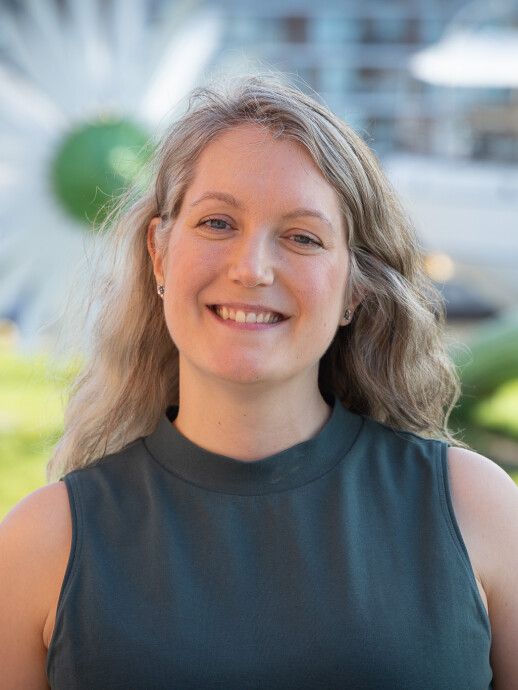Oikeustieteellisen tiedekunnan Tutkija valokeilassa -uutissarjassa esittelyvuorossa on tutkijatohtori Isabell Storsjö.
Isabell Storsjö
Position in the Faculty of Law: Postdoctoral Researcher
Degrees: D.Sc.(Econ.), Master of Laws
Fields of interest: Supply Chain Management, Public Sector Operations and Supply Chain Management, Public Value Theory, Security of Supply, Humanitarian Logistics, Sustainability, Human Rights, Legal Processes and Court Administration, Case Flow Management, Contracting Practices, Legal Design, Private International Law, Interdisciplinary Research
Describe your career path. What led you to where you are today?
I have always been eager to learn new things and to understand how things are organized and connected. When I as a teenager was thinking about what to study at university, I was mainly looking at law schools and business education, particularly with specializations in the EU and logistics. I ended up studying Supply Chain Management and Corporate Geography at Hanken School of Economics, and Law at the University of Helsinki.
Quite early in my studies, I got interested in sustainability and human rights, and I participated in the Nordic Case Competition on Human Rights. In that competition, I focused on the right to a fair trial without undue delay – probably because I was used to thinking about strategies and practices for enabling flow between actors in supply chains from my business studies.
I wrote my master’s thesis in business about lean thinking in the Finnish criminal justice process. I wanted to continue investigating that topic, and thus applied to Hanken’s PhD program (I was still enrolled in law school in Helsinki at the time), and started working with researchers in the Humanitarian Logistics and Supply Chain Research (HUMLOG) Institute. I joined a project that was studying Cascading innovation upstream the supply chain through procurement processes, in the health care, energy and water services sectors in Finland. Since the project was carried out by the HUMLOG Institute, and the research plan had been developed together with the National Emergency Supply Agency, preparedness and security of supply were important aspects studied in addition to innovation. My own personal interest in the management of courts and legal processes was expanded to processes and service provisions in other sectors.
During the pandemic, I finished my law degree, with a thesis focusing on international commercial contracts, supply chains and force majeure, since at that point in time a new virus had started spreading in China which I anticipated would cause delays in certain supply chains. We all know now how that developed… In my doctoral dissertation, I discussed how to integrate public value theory and supply chain management, at the intersection of public policy and government regulation and supply chain strategy, drawing from and relating to the studies I had carried out during the PhD process.

According to Isabell Storsjö, inspiration can be found in unexpected places. "Seminars and conferences are what one would expect, but lunches and coffee rooms are usually more fruitful in terms of interesting ideas."
What projects are you currently working on?
I currently work in the LEXSECURE project, which studies the legal foundations of global supply chains and what could be done to ensure secure supply of critical goods, such as medical supplies, in times of global crises.
Have your interests evolved since finishing your studies?
I am getting very curious about how to cross the boundaries between the disciplines of Law and Supply Chain Management, and between practitioners in both fields. Law and lawyers have a great impact on the functioning of global supply chains and contracts in supply chains, but so does supply chain management and managers. The pandemic has also shown that decisions regarding supply chain design can have major and unforeseen impact on societies. There could be much to learn from each other in these two fields, but one would need to find a common language.
What would you be, if you were not a researcher?
A profession where one would need to read, write and talk to people, such as a judge, librarian or journalist.
What inspires you?
Inspiration is usually found in unexpected places, but mostly in conversations with other people. Seminars and conferences are what one would expect, but lunches and coffee rooms are usually more fruitful in terms of interesting ideas. And I must say, the most exciting, refreshing and memorable moments of inspiration have come from chatting with someone in a queue, in a bus or flight, or in a restaurant – don’t underestimate the man (or woman) on the street!





